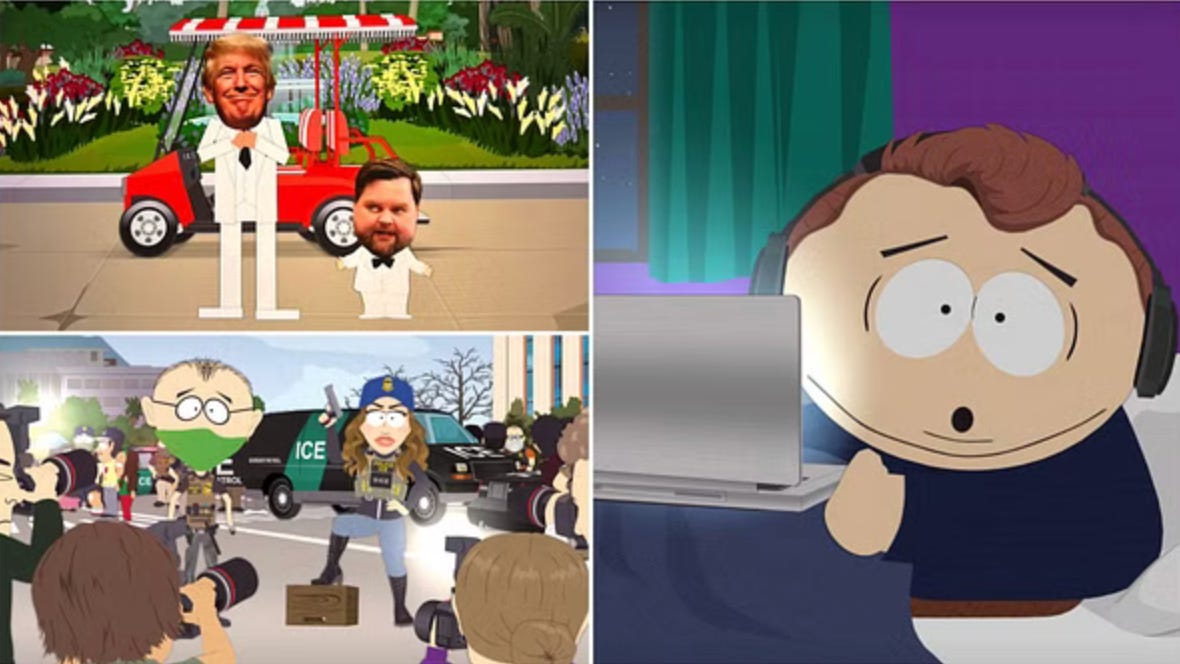'South Park' Continues to Eviscerate Trump
Despite ongoing talk of censorship, South Park remains as bold as ever
With news of a merger between Paramount and Skydance, the future of South Park has been thrown into a state of uncertainty. Falling under the same parent company as Stephen Colbert, many have speculated that it could succumb to a similar fate and be discontinued completely.
What few anticipated was that the season 27 premiere would be one o…
Keep reading with a 7-day free trial
Subscribe to The Gen Z Report to keep reading this post and get 7 days of free access to the full post archives.


